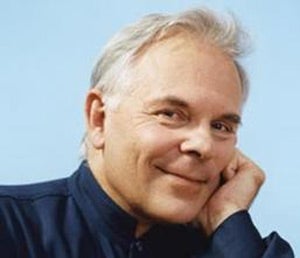Stephen Kovacevich 70th Birthday Concert, Wigmore Hall

It was Stephen Kovacevich’s 70th birthday party and his highly individual guests represented past, present, and future.
His kindred spirit and sparring partner, Martha Argerich, was there sharing primitive passions for Bartok, the Brahms I remembered from the days when Stephen Kovacevich was Stephen Bishop found soulful kinship with the Belcea Quartet, and a young protégé of both Kovacevich and Argerich effectively crashed the party with a fearless, unfettered account of the great Liszt Sonata in B minor.
The Liszt divided the evening in more ways than one and interval talk about Khatia Buniatishvili ranged from open hostility through unease to unmodified rapture. Argerich’s sort of player. From the unsettling slumber-resistant twitches of the opening notes and descending scales burrowing deep into the bass register came a jolting awakening which seemed quite literally to murder sleep. Even the sonata’s inward-looking reflections were attended like bel canto mad scenes – limpid but poised on the brink of collapse. There was going to be nowhere to hide.
The rest was scarifyingly unhinged with huge saturated climaxes that might have degenerated into sheer noise had the sound not been so impressively anchored. The eleventh hour fugue was incisive and fast enough to more than suggest demonic possession and the final disintegration was numbing. I thought it awesome – but one man’s awesome is another man’s reckless.
The evening had begun with Kovacevich’s beloved Brahms – the Piano Quintet in F minor – and once the birthday boy had settled into the youthful but endearingly old-world embrace of the Belcea Quartet it was a performance full of generosity and what can only describe as “orchestral mellowness”. How touching to hear Kovacevich gently taking the lead in the andante with each string voice in turn lending discreet endorsement. By the bracing scherzo they were fully fired up with march-like exhilaration teetering very close to aggression as the Brahmsian drama grew progressively darker.
It was a percussive evening – and Argerich on second keyboard very much took charge of Bartok’s Sonata for Two Pianos and Percussion entering into a running dispute with her page-turner and duly startling us with her unassuming but still lethal precision. The barbaro elements were punctuated with ear-popping xylophone and timpani from Sam Walton and Colin Currie and the folksy knees-up of the finale was certainly one way of partying.
Subscribe to Independent Premium to bookmark this article
Want to bookmark your favourite articles and stories to read or reference later? Start your Independent Premium subscription today.

Join our commenting forum
Join thought-provoking conversations, follow other Independent readers and see their replies